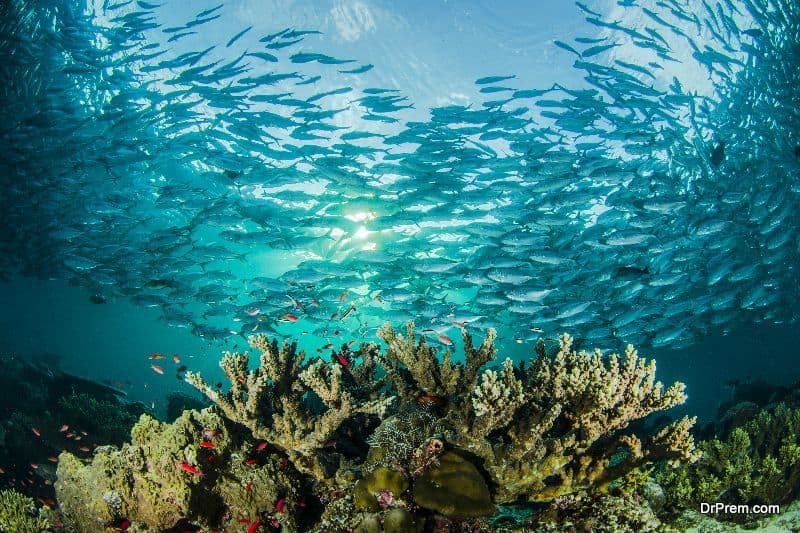Coral reefs form the life and breath of the Caribbean fabric, threading along thousands of kilometers of the coastline, they serve a multitude of purposes to the Caribbean people. They are breeding grounds for a few fish and hence provide food (fish) for millions of people, their structure protects shorelines from tropical storm swells, and they enchant divers from around the world, bringing with them sufficient tourism dollars for local Caribbean economies. Moreover, they offer hope to pharmaceutical companies as potential sources of new drugs and life-saving medical treatments.
Unfortunately, human activity is putting enormous pressure on these valuable ecosystems and degrading them. Over fishing, global warming, coastal development, sedimentation, disease, and marine pollution are posing a serious threat to coral reefs, taking an alarming toll on reefs throughout the Caribbean. A recent study reports that six species of reef-building coral could disappear from the Caribbean due to rising temperatures and toxic runoff from islands’ development. Most vulnerable among them being staghorn and elkhorn corals, which were once among the most prominent.
Even before the recent study, a project called ‘The Reefs at Risk in the Caribbean’ was conducted to assess the status of coral reefs throughout the Caribbean. The project highlighted that the corals are at a high risk. Nearly two-thirds of coral reefs in the Caribbean are threatened by at least one form of human activity and another one-third are threatened by coastal development, sediment, and pollution from land-based sources. Over fishing threatens 60 percent of Caribbean coral reefs. Coral reefs thrive in traditionally nutrient free waters. Nearly 20% of the sewage water entering the ocean is treated before being released. Untreated sewage is a major source of nutrients entering coastal waters, which, under normal circumstances, would be devoid of nutrients. These conditions favor algal growth at the expense of the corals.
The conversion of land to agriculture increases soil erosion and sediment delivery to coastal waters, bringing with it pesticides and nutrients. Fertilizers increase the amount of nutrients in the water when they are transported by run-off, can lead to algal blooms, produce dead zones, that is, areas devoid of oxygen, which can be devastating to coral reefs.
Marine pollution in the form of oil discharge, sewage, ballast, and the dumping of other human garbage, wreckage of ship are a cause for great concern for the reefs. Oil damages coral reproductive tissues, harms zooxanthellae, hinder immature coral recruitment, and reduce the resilience of reefs to other stresses.
Caribbean coral reefs are particularly susceptible to over fishing, the mainstay of Caribbean economy. Fishermen normally target the largest fish on the reef as these have the highest market value. Once, larger fish cash reduces, the fishermen shift to smaller ones, further removing more components of the coral reef food web, which can seriously alter coral growth.
The Caribbean Biodiversity Initiative, along with the nonprofit World Conservation Union in Switzerland and the Royal Caribbean Cruises’ Ocean Fund, sponsored the study. The researchers also pointed significant damage to mangroves, which filter pollutants.
The coastal communities and national economies of the Caribbean region will be at suffering end if current trends in coral reef degradation continue.
However, conservation projects are in progress to protect coral colonies in the Caribbean. Coral Reef Task Force formed by the U.S. government is helping officials in Puerto Rico and the U.S.
Image
Via: Hosted


